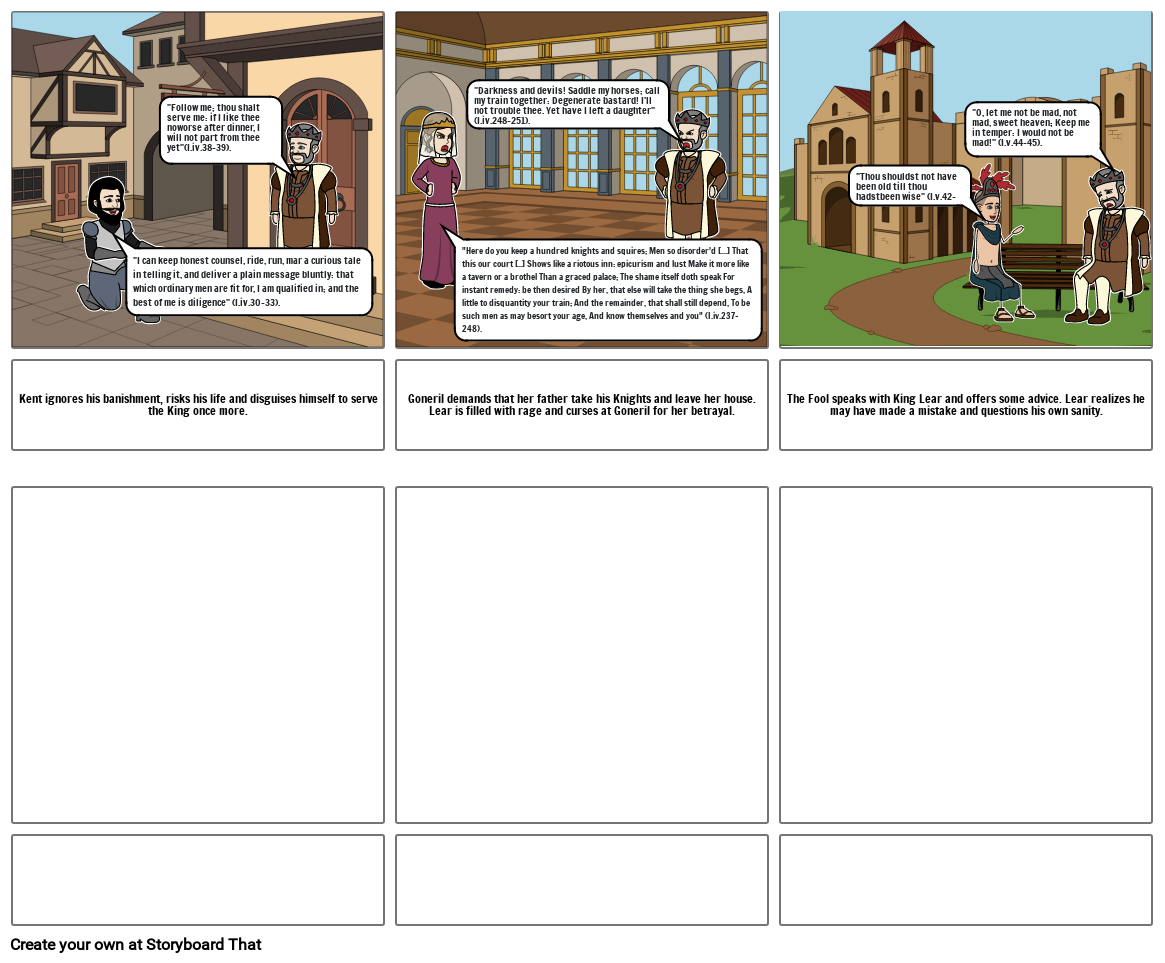King Lear: Act 1

Storyboard Text
- I can keep honest counsel, ride, run, mar a curious tale in telling it, and deliver a plain message bluntly: that which ordinary men are fit for, I am qualified in; and the best of me is diligence (I.iv.30-33).
- Follow me; thou shalt serve me: if I like thee noworse after dinner, I will not part from thee yet(I.iv.38-39).
- Here do you keep a hundred knights and squires; Men so disorder'd [...] That this our court [..] Shows like a riotous inn: epicurism and lust Make it more like a tavern or a brothel Than a graced palace; The shame itself doth speak For instant remedy: be then desired By her, that else will take the thing she begs, A little to disquantity your train; And the remainder, that shall still depend, To be such men as may besort your age, And know themselves and you (I.iv.237-248).
- Darkness and devils! Saddle my horses; call my train together: Degenerate bastard! I'll not trouble thee. Yet have I left a daughter (I.iv.248-251).
- Thou shouldst not have been old till thou hadstbeen wise (I.v.42-43).
- O, let me not be mad, not mad, sweet heaven; Keep me in temper: I would not be mad! (I.v.44-45).
- Kent ignores his banishment, risks his life and disguises himself to serve the King once more.
- Goneril demands that her father take his Knights and leave her house. Lear is filled with rage and curses at Goneril for her betrayal.
- The Fool speaks with King Lear and offers some advice. Lear realizes he may have made a mistake and questions his own sanity.
Over 30 Million Storyboards Created
No Downloads, No Credit Card, and No Login Needed to Try!
